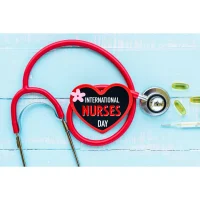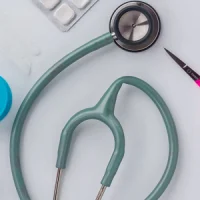Medical errors must be prevented as much as possible so as not to jeopardise patient safety. In nursing, studies have found that the most common mistakes are made in relation to medication, documentation, infection prevention, miscommunication and falls.
You might also like:New hospital policies and procedures required for patient safety
To help practitioners, especially newly qualified nurses, to avoid committing such mistakes, experts offer the following guidance and tips in an article published in Nursing Times (Cathala and Moorley 2020). It highlights the importance of 'reporting errors' as this step is key to avoiding recurrence and improving practice.
Medication errors. Some examples are administration of drugs without a prescription, wrong dose or route, and not considering the patient's sensitivity or allergic reaction. In the UK, nurses should follow guidelines on drugs administration issued by the Royal Pharmaceutical Society and Royal College of Nursing. In the case of controlled drugs, for instance, two registered nurses must check and sign the prescription, and check the drug (name, concentration, expiry date, etc) together.
Documentation. Missing information or inputting inaccurate data are some of the mistakes in this area. It is the responsibility of nurses to keep patients' records up to date and accurate, even though this may be a tedious task particularly when doing 12-hour shifts.
Infection prevention and control. In the hospital setting, the risk of infection is always present and nurses should be mindful and aim to minimise such risk. The hospital's infection prevention protocols must be followed at all times to ensure the safety of patients. Errors can occur by failing to adhere to isolation protocol, not complying with the hand-washing or hygiene regimens, and improper use of aseptic non-touch technique procedure.
Miscommunication. Communication mistakes occur when wrong information is relayed to members of the care team, or due to delays in escalating information. Communicating skills are enhanced as nurses gain more experience. For newly qualified nurses, the use of NHS Improvement’s SBAR (situation, background, assessment, recommendation) tool is recommended. SBAR is a structured approach to communication with members of the multidisciplinary care team.
Falls. Reducing patient falls, particularly among the elderly, is the goal of hospitals' manual handling training for nurses and other staff. As falls carry a high potential risk of patient injury, it is important for nurses to fully assess the patient, identify any risk, and have in place protocols and necessary equipment to ensure patient safety.
Managing and Reporting Mistakes
Errors can be prevented if national guidance and recommendations are implemented by healthcare professionals. When errors do occur, however, reporting is important to reduce or avoid mistakes.
Nurses and other staff should be aware of their organisation's policy on reporting clinical errors. “The purpose of reporting is not to lay blame on the person who made the mistake, but to improve practice,” the authors points out.
Source: Nursing Times
Image credit: monkeybusinessimages
via iStock
References:
Cathala X, Moorley C (2020) Managing errors and mistakes: guidance for newly qualified nurses. Nursing Times. Published online 24 June.


![Tuberculosis Diagnostics: The Promise of [18F]FDT PET Imaging Tuberculosis Diagnostics: The Promise of [18F]FDT PET Imaging](https://res.cloudinary.com/healthmanagement-org/image/upload/c_thumb,f_auto,fl_lossy,h_184,q_90,w_500/v1721132076/cw/00127782_cw_image_wi_88cc5f34b1423cec414436d2748b40ce.webp)







